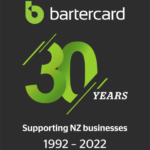How to manage a Christmas work party
Don’t make your next staff ‘do’, a staff ‘don’t’. Aasha Foley shares her business owner’s guide to surviving the Christmas season. We are approaching the silly season at speed, and […]
Don’t make your next staff ‘do’, a staff ‘don’t’. Aasha Foley shares her business owner’s guide to surviving the Christmas season.
We are approaching the silly season at speed, and with that, one of the more eagerly anticipated events of the social calendar: the staff Christmas party. Amid the rush, plenty of business owners may forget to consider their responsibilities at the old end-of-year “do”, particularly with respect to health and safety and the need to avoid common social disasters.
Employers should understand their obligations across three critical issues before planning their event:
- What are an employer’s legal obligations around staff events?
- How do employers ensure their social event provides for a safe environment with clear behavioural expectations?
- When the worst happens, how should employers respond?
The Health and Safety at Work Act 2015 (HWSA) imposes various obligations on employers, including plenty that apply when organising and hosting Christmas parties. Principally, an employer has a duty to provide a “safe environment” for their team at work functions – regardless of where it’s being hosted. This means an employer must ensure the venue is fit for purpose, with any potential health and safety hazards being managed.
In style with our stereotypical Kiwi culture, Christmas parties often involve the supply and consumption of alcoholic drinks alongside a well-cooked glazed ham and a smartly decorated Pav. News flash: the safe delivery, supply, and subsequent consumption of alcohol at a work event is another employer’s responsibility to manage; consumption of alcohol is considered a health and safety “risk” due to the all-to-often contribution alcohol can have on “poor behaviour” at social events.
You may think that your responsibility as an employer ends come the completion of a working day, outside of business hours or when an employee is otherwise “offsite”. Specifically, in the case of intoxication, the HWSA factors in potential liability where alcohol is involved at a work event. Liability will consider:
- The closeness and connection of the incident to the work event;
- What measures the employer took to reduce the risk of intoxication; and
- The individual responsibility of the employee.
And, of course, following the last two years, we’re all too familiar with an employer’s obligation to take additional measures to help prevent the spread of COVID – remember to provide hand sanitiser at events and remind employees to stay home if they aren’t feeling well.
Here are some top tips to ensure your Christmas party is fun, safe and goes off without a hitch:
- Communicate clear expectations. Ensure your work Christmas party is hosted in a safe environment; and that you are setting clear behavioural expectations with your employees. This will ensure you set your event up for success. Before the party, employers should take steps to remind or consult with staff on “workplace codes of conduct” and their expectations of professional behaviour and safe-drinking practices. We recommend that an employer reiterates their expectations in all Christmas party communication emails and/or invitations. If staff are aware of what is expected of them at the event, this can help to minimise risks associated with an employer’s liability if things get out of hand. If you need to enforce rules or expectations, it’s less likely to come as a surprise and will be easier to reign in.
- Assign a designated sober person. One of the most effective measures you can put in place is to organise a designated hand brake in the form of a sober adult. This can do wonders in preventing over-indulgence. We recommend that your designated sober person supervises the entire event to monitor alcohol consumption and risks of intoxication. In our view, it’s important that this role is undertaken by a suitable manager or person in a leadership role, as they must wield the sufficient authority to enforce the last call of drinks at the bar. Consider the type of person who can gently swap a bubbly for a faux-fruit-like drink and otherwise tuck an over-indulgent employee safely into a taxi and on their way home.
- Provide food, non-alcoholic drinks and transport. A responsible host is obligated to provide food and ensure it is served in conjunction with the consumption of alcohol. Steps should also be taken to limit availability at the bar, offering a range of non-alcoholic options and enforcing a cut-off time for accessing alcohol. The provision and organisation of transport after an enjoyable evening is also essential – offer taxis, sober drivers, and accessible ways for people to get home safely.
If the worst happens at your Christmas party and an incident does occur, employers must ensure any steps they take following an incident are done with the principle of operating in good faith; this means your process and actions must be fair. Suppose an incident results in a complaint; an Employer must conduct a fair and robust investigation and ensure the steps taken to uphold the dignity of all parties involved.
Most commonly, complaints following a Christmas party relate to incidents of harassment. Harassment of any kind may constitute misconduct and should always be investigated by the employer. In the case of one employee alleging misconduct from another, employers should seek to resolve the situation quickly and carefully. Depending on the matter being investigated, it may be appropriate to implement independent investigations or even suspend employees. Professional advice should be taken as early as possible when an incident occurs. This ensures that the situation is resolved legally, productively and respectfully for all parties involved.
Instead of relying on the benefit of hindsight, take active steps now in planning your event to ensure you are protecting yourself and, importantly, your employees during the silly season. And if you have any questions on how that might look, feel free to reach out to our experienced team for some advice – whether it’s how to plan an enjoyable social event (definitely our forte) or about your employment obligations – we’re here to help guide you through the festive season.
Starting a law firm at 28 and watching it grow to 25 staff over five years, Aasha Foley (pictured below) knows a thing or two about running a business and being an employer. The managing partner of iCLAW, a growing law firm, Aasha was named a Rising Star by NZ Lawyer in 2021.






